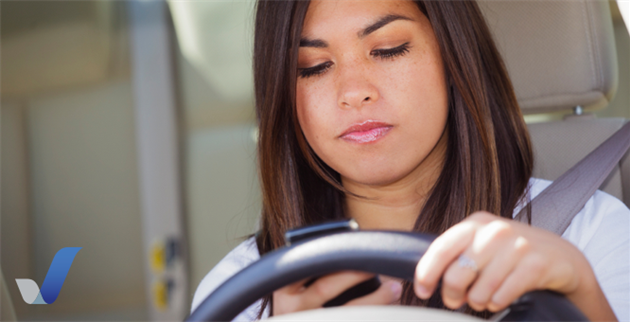Triple Threat: 3 Types of Distracted Driving


Driving and multitasking don’t mix!
In this technologically advanced era, multitasking is no longer confined to just the workplace. It is a staple in everyday life.
We juggle many things simultaneously throughout our day; texting while walking, cooking and chasing toddlers, watching television
while checking Facebook, the list goes on and on. However, one of the most dangerous combination of tasks occurs in the car.
The facts:
According to the National Highway Traffic Safety Administration, distracted driving caused nearly 3,300 deaths in 2018. It also caused over 400,000 accident-related injuries.*
How do we classify distractions?
Distracted driving comes in 3 different forms:
1. Cognitive distraction
Cognitive or mental distraction is when a driver's mind isn't focused on driving. Talking to another passenger or being preoccupied with personal, family, or work-related issues are just some examples.
Even drivers listening to their favorite
podcast or radio station are at risk; the audio can take drivers’ focus away from their driving and overall surroundings.
2. Visual distraction
Visual distraction occurs when a driver looks at anything other than the road ahead. Drivers who check the kids' seat belts while driving are visually distracted. Cell phones and other electronic devices, such as GPS devices and portable DVDs/digital
entertainment systems, also distract drivers.
3. Manual distraction
Manual distraction is when the driver takes one or both hands off the wheel for any reason. Some common examples include eating and drinking in the car, adjusting the GPS, or trying to get something from a purse, wallet, or briefcase.
Texting and driving is particularly dangerous because it involves all 3 forms.
Driving and multitasking don’t mix!
We know it's tempting to answer that email or reprogram that GPS which just rebooted itself for the third time. However, by turning off your devices or resisting the temptation to tamper with them, you can focus on the road ahead and react more efficiently
to the unexpected and maybe even avoid an accident.
* This data was collected from police reports, which may not reflect the true number of distracted driving incidents.